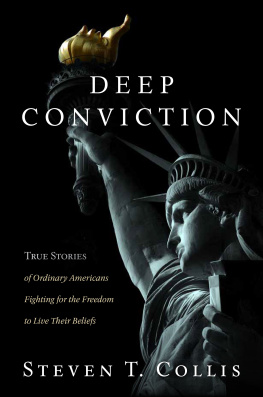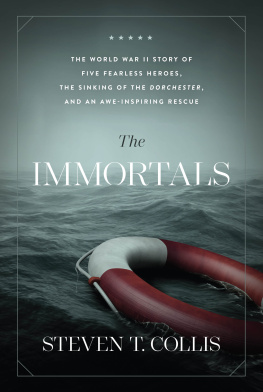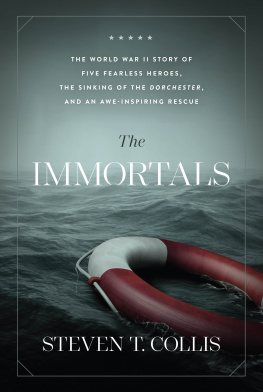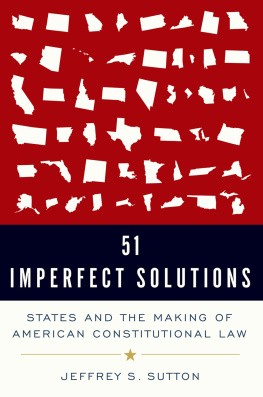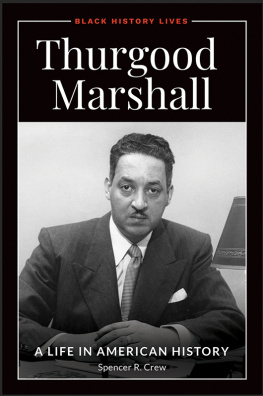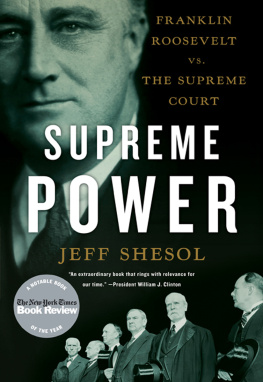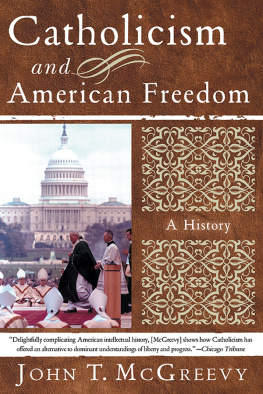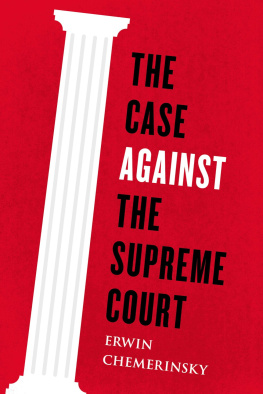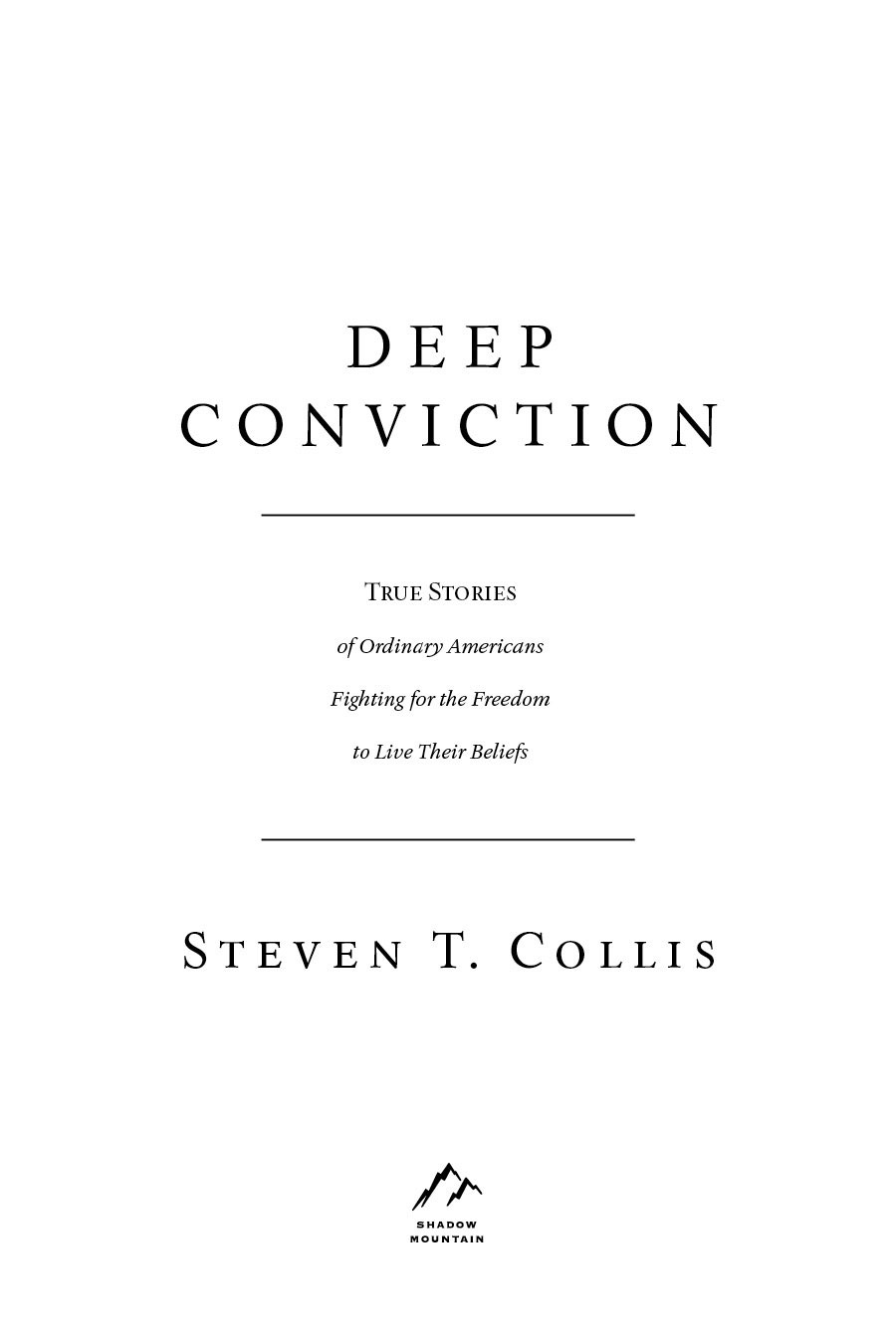2019 Steven T. Collis
All rights reserved. No part of this book may be reproduced in any form or by any means without permission in writing from the publisher, Shadow Mountain, at permissions@
shadowmountain.com. The views expressed herein are the responsibility of the author and do not necessarily represent the position of Shadow Mountain.
Visit us at shadowmountain.com
Library of Congress Cataloging-in-Publication Data
Names: Collis, Steven T., 1978 author.
Title: Deep conviction : true stories of ordinary Americans fighting for the freedom to live their beliefs / Steven T. Collis.
Description: Salt Lake City, Utah : Shadow Mountain, [2019] | Includes bibliographical references and index.
Identifiers: LCCN 2018056381 | ISBN 9781629725536 (hardbound : alk. paper)
Subjects: LCSH: Freedom of religionUnited StatesHistory21st century.
Classification: LCC BR516 .C685 2019 | DDC 323.44/20973dc23
LC record available at https://lccn.loc.gov/2018056381
Printed in the United States of America
Lake Book Manufacturing, Inc., Melrose Park, IL
10 9 8 7 6 5 4 3 2 1
Contents
Introduction
S he wasnt getting better.
It was the middle of 2010. In a hospital room in Kansas, sixty-four-year-old mother of eight Mary Stinemetz lay in a bed while doctors, once again, drained her chest. In recent months, her body had withered. Her abdomen had swelled. As the fluid pooled in her alveoli, it clipped her breathing. Her illness had caused her immune system to fail, so common sicknesses stalked her now, waiting for an opening. Her face had aged so dramatically she could have passed for someone twenty years older. She was weak, so just leaving the house to come to the hospital was a challenge. Anemia left her feeling cold all the time.
Twenty years earlier, she had received the diagnosis that led to this bleak point. It was primary biliary cholangitis. A chronic disease, caused by both genetic and environmental factors, was slowly destroying the bile ducts in her liver. And it was finally overtaking her.
As fate would have it, all hope wasnt lost. Researchers had discovered a cure. It would have saved her and given her decades more to play with her grandchildren and serve in her church. It was a liver transplant, but there was just one problem. A devout Jehovahs Witness, Mary couldnt accept a procedure that involved a blood transfusion. Citing numerous biblical verses, she believed it violated Gods commands to accept blood from another person. No matter how foolish the doctors might have thought her religious convictions, she couldnt ignore them. Like millions of others, if forced to choose between life and her deeply held religious beliefs, she would choose the latter.
The good news was that medicine had developed a bloodless procedure that would work. The bad news was that the Kansas Health Policy Authority refused to authorize it. They could have. The difference in patient outcomes was largely insignificant. It didnt cost any more than the traditional procedure. In fact, some estimates indicated it might have been cheaper. But they didnt believe her religious preference rose to the level of being a medical necessity.
They demanded that Mary choose: forget her religious beliefs... or die.
Mary sued. Her argument was that the state couldnt constitutionally put her in such an impossible position.
Although the clock on her life was ticking with the stilted regularity of each of her struggling gasps, the state refused to back down.
The number-one factor that would determine whether Mary would live or die wasnt what most people think. It wasnt doctors or medical procedures. It wasnt money. The single greatest influence wasnt even a person or lobbying group. It was an idea, an experiment, something that has been brewing on this continent since before the founding of the United States. It was the notion that religious freedom for all, truly cherished, would allow justice and protection for everyone.
Religious liberty is a complicated topic. Some attack it, some defend it, and most mischaracterize it. The principles arent obvious. The best path is to walk alongside a few of the intrepid travelers who have put their reputations and livelihoods at risk to preserve it. Seeing what they saw, hearing what they heard, feeling what they felt, we can appreciate its relevance to our own lives.
Of course, we could lose ourselves in thousands of stories. I have picked just four. I chose them for their universality, for the broad principles they teach us. Together, they show why this very important of human liberties should matter to everyone.
In many respects, the individuals in this book couldnt be more different: a Catholic priest who faced prison just after the countrys founding, in the humid courtrooms of a still-rural New York City; during the middle of the Cold War, an atheist who pushed his seemingly mundane attempt to become a Maryland notary public all the way to the United States Supreme Court; thirty years later, a Klamath Indian man who had used his faith to climb out of the depths of despair only to have the state of Oregon try to punish him for it; and finally, a gay couple and a cake maker in the Mile High City who peered at each other from opposite sides of a chasm seemingly impossible to cross.
What binds the stories together, from a dusty prison in 1813 Manhattan to a cake shop in Lakewood, Colorado, is one unbreakable thread that stretches and twines across the United States: the principle that religious liberty is a liberty for all of us, one that births other liberties, one that allowed the formation of the most religiously diverse country on earth, one that protects us regardless of our beliefs, and one we must not take for granted. That thread pierces both time and geography.
Lying in her hospital bed, needles and tubes stretching from her lungs, Mary Stinemetz had only the vaguest sense of where she fit into Americas experiment with religious freedom. As her case progressed and her body destroyed itself from the inside out, she would learn. Her family would as well. And the stories in this book shed light on the principles they would come to understand, which in turn would determine whether Mary would live or die.
They begin with an Alsatian Jesuit priest shouldering the burden of a people not entirely his own.
Note
.Throughout this book, I use the terms religious liberty and religious freedom interchangeably.
Part 1
The Seal of the Confessional
T orrents of blood have been spilt, James Madison wrote at the time of the founding of the United States. Like all the Founders, he faced an opportunity few others had ever or will ever experience: the chance to form the laws for a completely new nation. And he was describing what had occurred in the centuries before, when a lack of religious freedom had led to unimaginable human suffering. He looked back through time, and he wondered how this new nation could avoid the same tragedies that had plagued people everywhere else.
It was a legitimate concern. Human historyand especially the European history the Founders knew so wellhas seen some of its worst atrocities when one group of people has attempted to use the powerful hand of government to bolster its religious views over others. In the 1500s, what we now call the Reformation saw the rise of Protestantismgroups of Christians who formed to protest the then-dominant Catholic Church. What followed for centuries was one attempt after another by Catholics and Protestants to use the power of the state to win their religious arguments. The result was nothing but bloodshed, and virtually no one was left unscathed. History had confirmed through sad experience that it was the nature of almost all people to abuse power once they had it, to use the power of government to force their beliefs on others, and to crush those with differing views.

